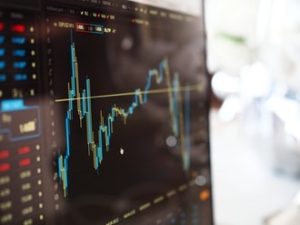The Evergrande Crisis Shows the Need for Greater Regulatory Oversight of the OTC Markets

The potential imminent collapse of China’s largest property builder, Evergrande, is shining a light on just how expensive homes in China’s big cities have become—and how much of a risk of a bubble there is, with potentially catastrophic effects on the global markets. A potential collapse would not just affect Chinese investors, although they may bear the brunt. Evergrande is traded over-the-counter in the U.S. and its potential collapse is forcing some tough conversations about exactly how much of a role the SEC should play in regulating OTC companies.
Some say this bubble has been foreseeable for years, but there is no indication Chinese regulators are prepared to address it. Thus far, the SEC and other U.S. regulators are claiming the company’s potential problems are out of their jurisdiction and refusing to step in to calm nervous markets. Evergrande’s OTC stock price has dropped approximately 75% since the beginning of the year. There is no doubt that U.S. investors are caught up in the crisis and are likely to lose a significant amount of money in the process.
Interestingly, this crisis comes at a time that the SEC is purposefully increasing its oversight of the OTC markets. As of September 28, 2021, companies are required to disclose fulsome and timely fiscal information in order to keep their OTC listings. This change in regulatory oversight shows that the SEC recognizes a problem in the OTC markets and is willing to make initial steps to rein in potential fraud and other issues. But as long as the OTC markets remain a prime target for both less sophisticated retail investors and fraudsters, the OTC markets remain on a collusion crash for investor harm. The SEC may find that its small steps towards increased regulation are not sufficient to address this issue.
Whether Evergrande does collapse—and how widespread the ripple effects of such a collapse will be—remain open questions. But what is not for dispute is that U.S.-based OTC investors have already suffered losses and are likely to suffer more. This whole saga may very well be the catalyst the SEC needs to increase its oversight of the OTC markets.
If you have information about fraud in the OTC markets, please contact us.
Read More:
- Financial and Investment Fraud
- Securities Fraud
- Contact Us
- Whistleblower FAQs
- I Think I Have a Whistleblower Case
Tagged in: Financial and Investment Fraud, Regulatory Violations, Securities Fraud,